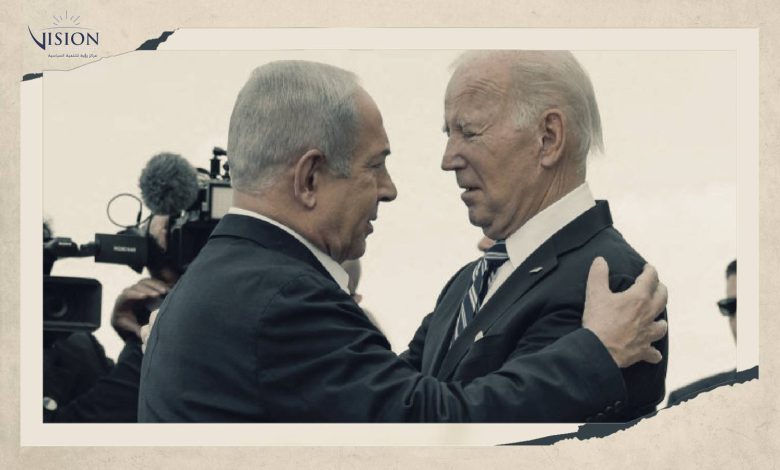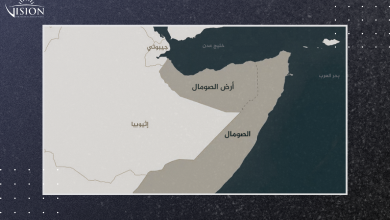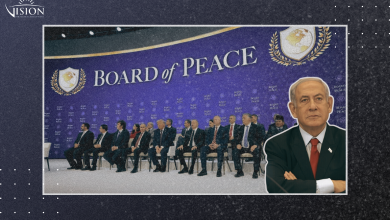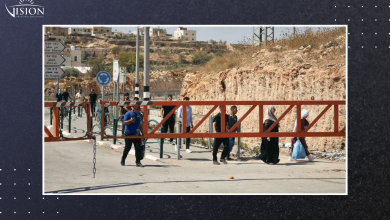The Coercion of “American Mediation” in the Palestinian-Israeli Negotiations

By Ahmed Atawna
For over three decades, the Palestinian people have been subject to the exclusive custodianship of the United States in negotiations with successive Israeli occupation governments. Washington has unilaterally assumed control over what has come to be known as the Palestinian-Israeli peace process, systematically obstructing any other nation from playing a meaningful role unless such involvement aligns with its strategic objectives.
The U.S. permitted European states, for instance, to engage in institution-building efforts in the West Bank and Gaza Strip, as well as to collaborate with civil society organizations, but only under the condition that these activities reinforce the political settlement process and do not conflict with Israeli occupation policies.
This monopolization of the political settlement process, along with the associated negotiations, persisted regardless of the composition of successive Israeli governments or American administrations. It is as though the United States has appropriated the entirety of the Palestinian cause, even when it comes to factions of Palestinian resistance, such as Hamas, which the U.S. has categorized as a terrorist organization.
The United States maintained its grip on the issue, delegating certain countries, including Qatar, Egypt, and Turkey, to facilitate negotiations. Throughout nearly two decades of Hamas’s governance in Gaza—marked by wars, blockades, and political maneuverings—the United States has remained the dominant actor, often dictating the trajectory and outcomes of these political engagements.
Not an Honest Broker
The United States has consistently claimed to act as a neutral mediator between the two sides, purporting to work towards a just resolution of the Palestinian question, with its efforts allegedly concentrated on achieving the two-state solution. However, a closer examination of American conduct reveals that it has never served as an impartial mediator, but has, in fact, consistently sided with the Israeli occupation, endorsing every measure that undermines the prospects for the establishment of a Palestinian state. The following points offer further evidence of this:
- The continuous provision of military, economic, and political support to the Israeli occupation, without ever conditioning this assistance on any progress in the political process or the peace settlement.
- The United States has consistently refrained from applying pressure on Israel at any stage to compel it towards even a minimally equitable resolution for the Palestinians.
- The unwavering protection of Israel within international forums, particularly the United Nations Security Council, where the United States has repeatedly employed its veto power to block resolutions that support Palestinian rights or hold Israel accountable to its international obligations.
- The persistent shielding of Israeli war crimes and atrocities against Palestinians, with American administrations always prepared to whitewash the actions of Israeli leaders after each conflict, particularly the wars waged on Gaza since 2008.
- Turning a blind eye to the expansion of illegal Israeli settlements that have engulfed the West Bank, along with a tolerance of settler violence, which has systematically eroded any viable foundation for a future Palestinian state.
- Support for Israeli policies that have actively sabotaged political solutions and impeded the path to any political settlement. A notable example is the tacit or overt involvement in the assassination of Palestinian leaders and national figures, from Yasser Arafat to Ismail Haniyeh.
- Assisting Israel in evading its obligations and responsibilities regarding the Palestinian cause.
- Consistently opposing and undermining every Palestinian effort—whether political, legal, or through resistance—to establish a recognized Palestinian state and secure international legitimacy, while actively working to counter these efforts in the international arena and relevant global institutions.
Deep Deception and Strategic Misguidance
For the past thirty years and continuing to this day, the United States has employed a singular strategy in its dealings with Palestinian-Israeli negotiations, the same strategy it currently deploys in the negotiations to halt the ongoing genocide in the Gaza Strip. This strategy can aptly be described as one of “deep deception and strategic misguidance,” predicated on creating the illusion that the United States is both serious and committed to resolving the Palestinian-Israeli conflict. The key pillars of this strategy are as follows:
Political Hypocrisy and the Discrepancy Between Rhetoric and Practice: While the United States frequently expresses its desire to end the war and broker a prisoner exchange, it simultaneously provides unwavering support to the Israeli military and its government. The U.S. administration does not hesitate to perpetuate falsehoods, adhering to the infamous maxim of Nazi propagandist Joseph Goebbels: “Lie, and lie again until the people believe you.” Consequently, many parties have been coerced into accepting these lies as truth, treating them as indisputable facts.
Disregard for Palestinian Political Rights: The United States has completely ignored the suffering of the Palestinian people and failed to offer them any substantive commitments. It has exploited Arab, Islamic, and even some European nations to distract the Palestinians with minor, peripheral issues, thereby diverting attention away from the core political matters.
Double Standards: The United States offers unconditional support to Israel, treating its security as an unchangeable constant, and prioritizing the Israeli narrative above all others. In contrast, it vilifies the Palestinian struggle and labels its factions as terrorist organizations, depicting legitimate acts of resistance as barbaric. Moreover, the U.S. actively participates in the pursuit of Palestinian resistance leaders, employing all means available, including extrajudicial assassinations, with complete disregard for international laws or norms.
Participation in Conflict Management
The United States actively facilitates the Israeli occupation in achieving both its short- and long-term objectives, aiding it in buying time to accomplish these goals. Today, it employs the very same strategy it used during the management of the Oslo negotiations, through which it granted the occupation three decades to deepen its grip on Palestinian land, expand its settlements, and intensify the Judaization of the territory. This was achieved by diverting the attention of Palestinians and Arabs with negotiations, the establishment of the Palestinian Authority institutions, and endless peace conferences.
The Palestinians must learn from their long-standing experience under U.S. sponsorship and are now obligated to exert every effort to put an end to this American manipulation of their cause—especially when time is paid for in blood. They must also reorganize their ranks, reconstruct their strategies, and refine their narratives and tools in order to seriously explore alternative pathways that impose new dynamics. These should push towards the involvement of other international sponsors who might exhibit greater seriousness and fairness.
American behavior in the negotiations to halt the war on Gaza must be viewed within the broader context of managing the conflict and furthering the objectives of the genocidal campaign against the Palestinian people. The United States should be treated as a full partner in this effort.
Arab and Islamic nations, as well as the allies of the Palestinian people, must be candid with their own populations and with the world about the true nature of the American stance. They should assist the Palestinians in breaking free from the oppression of this fraudulent mediation and biased sponsorship.





